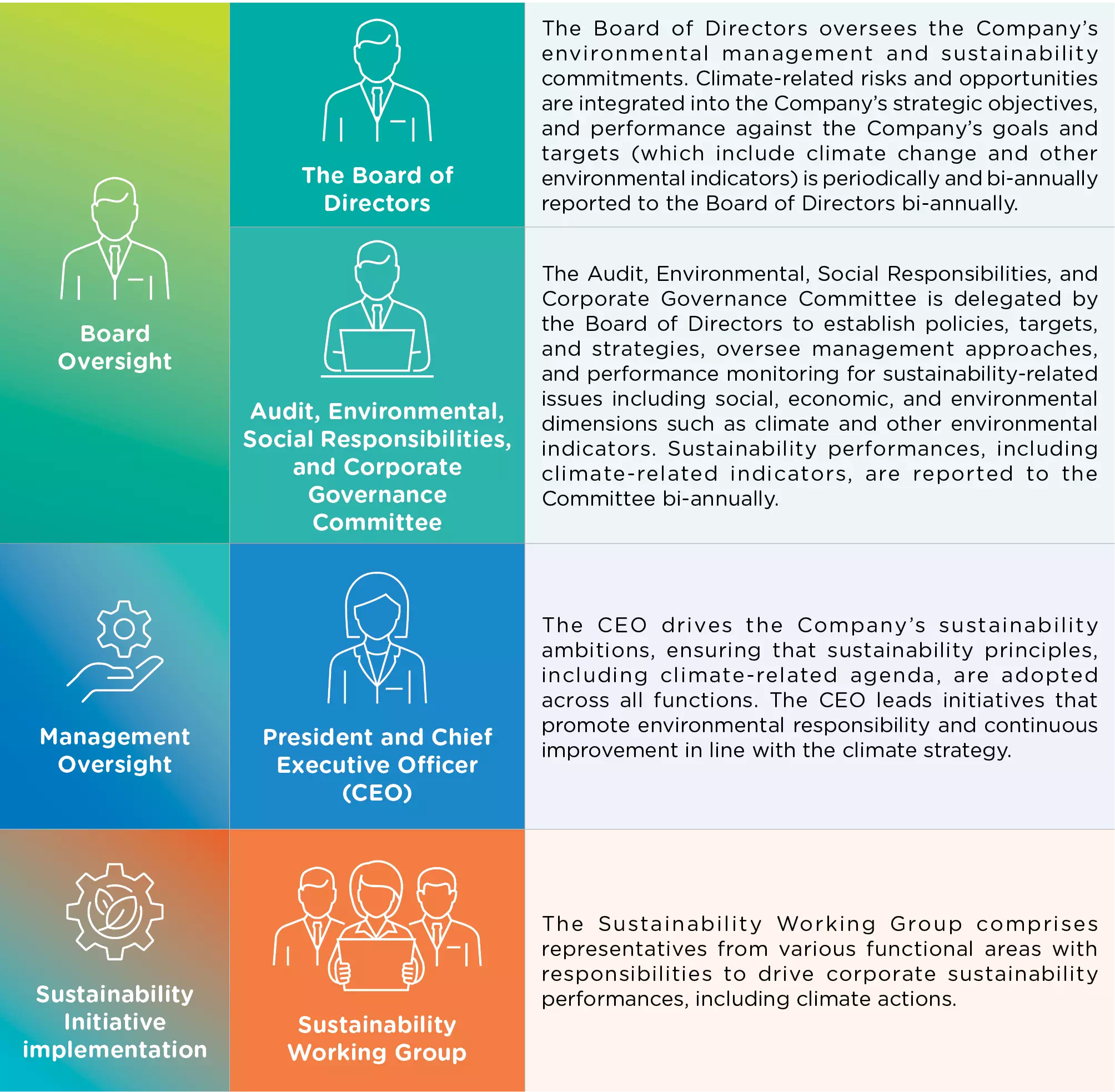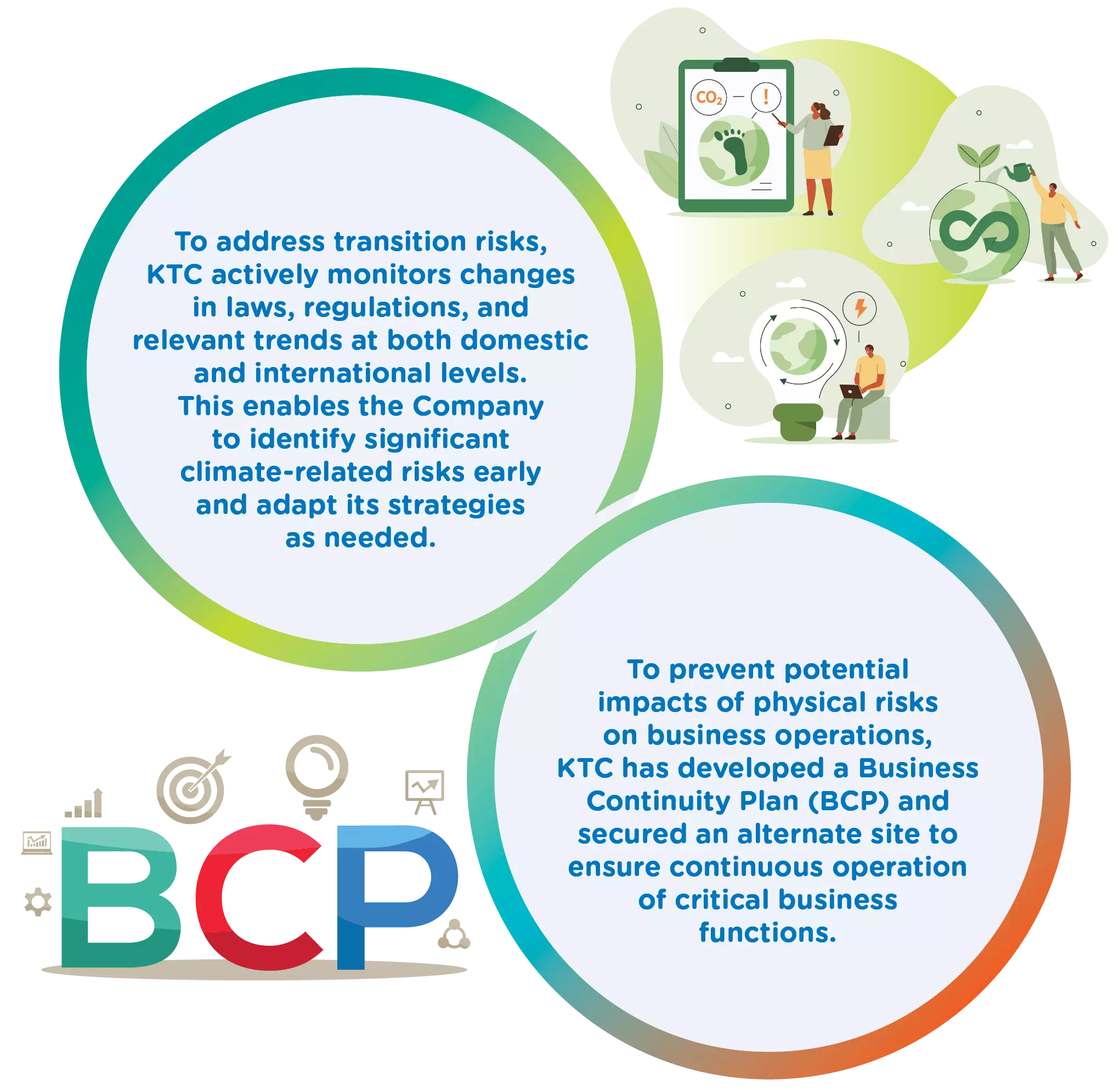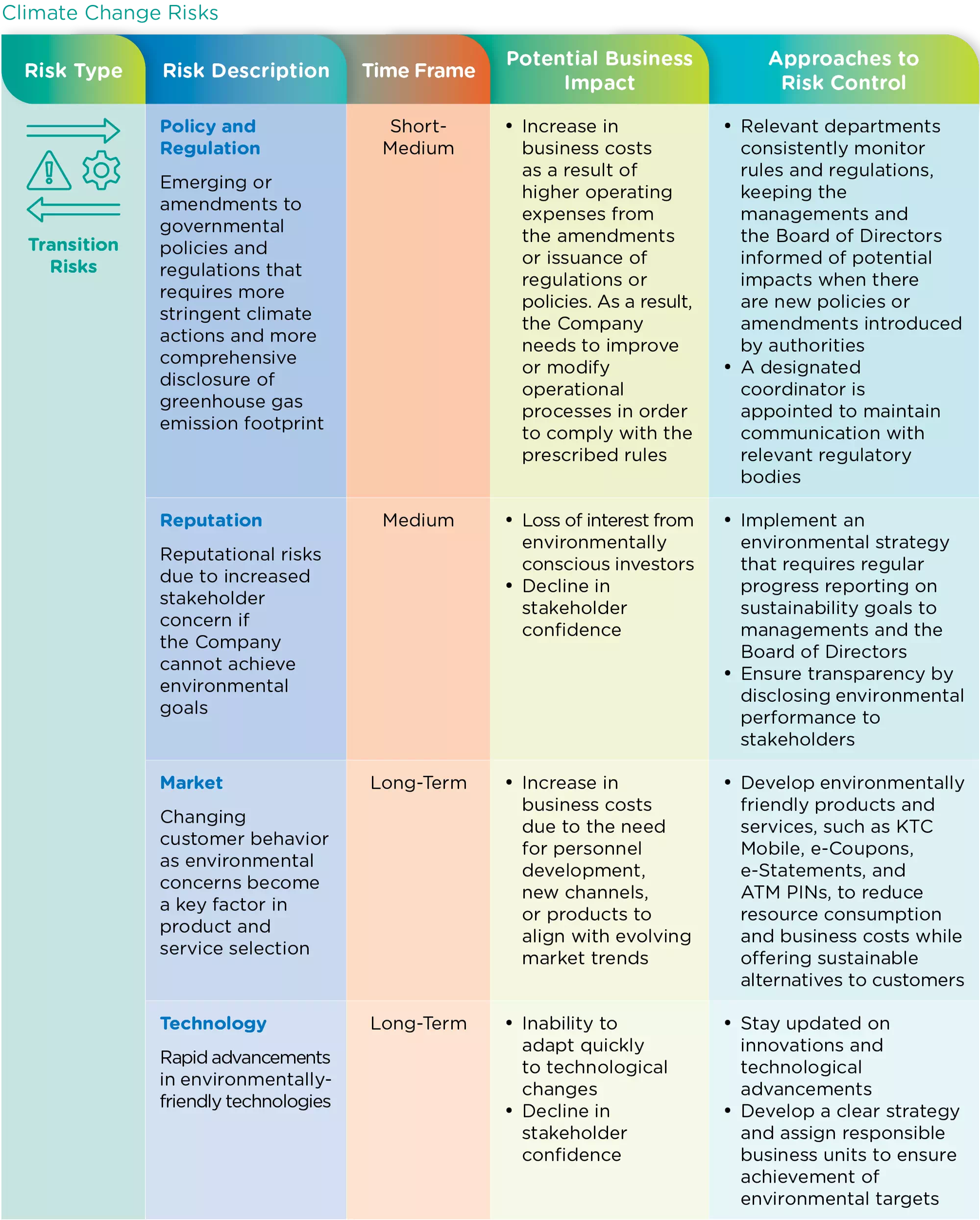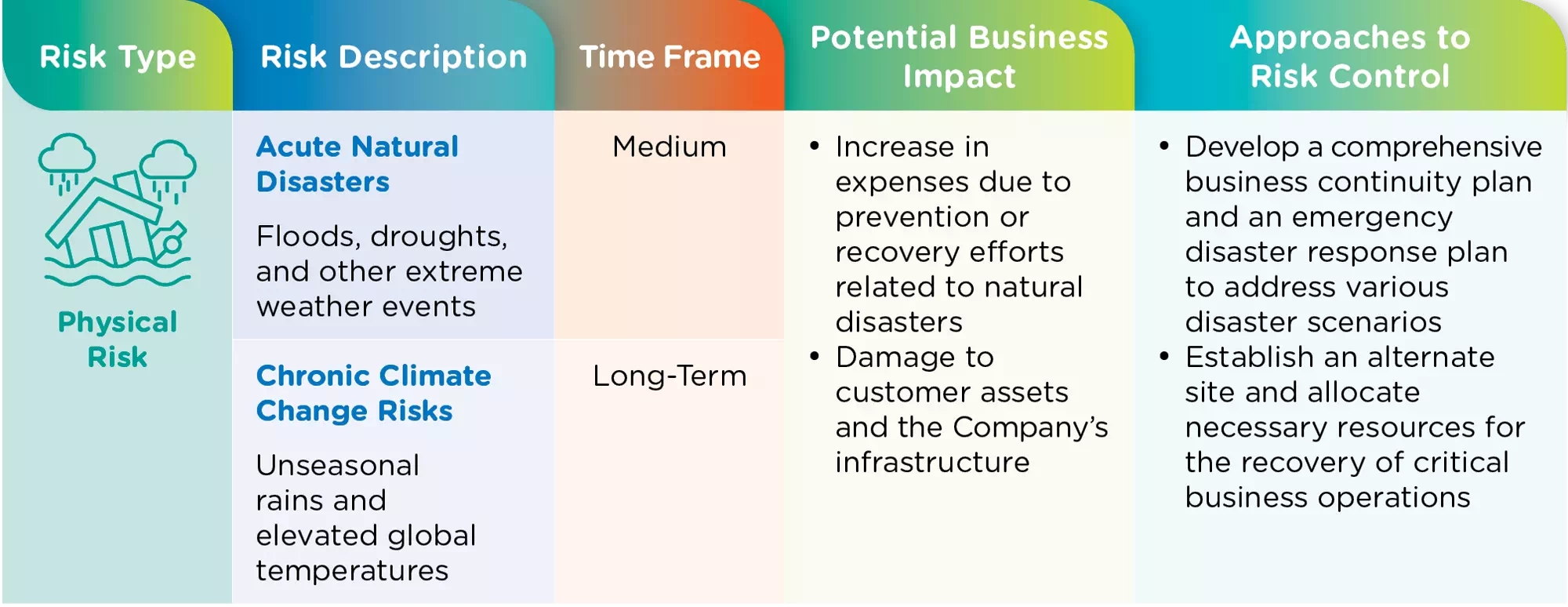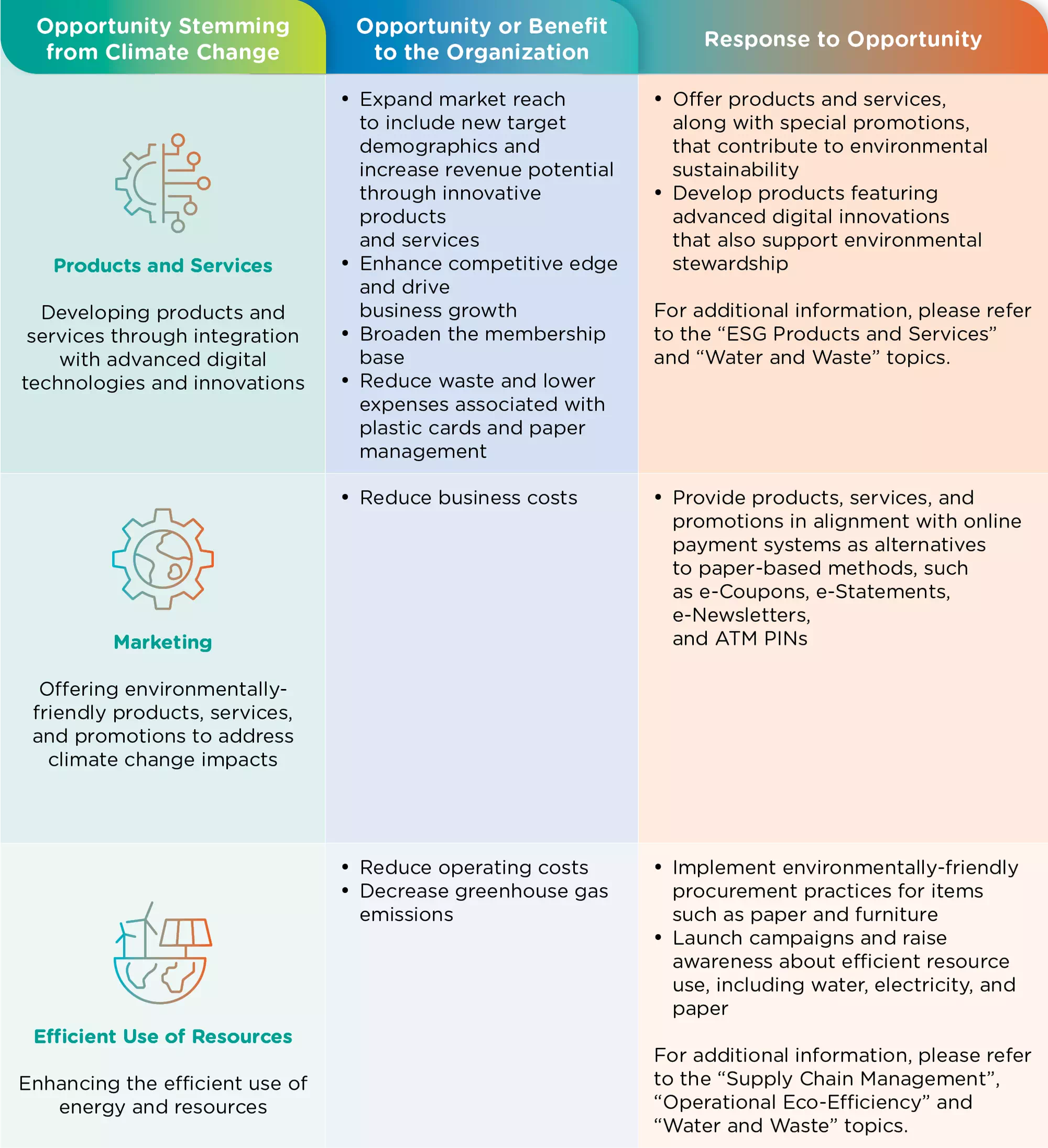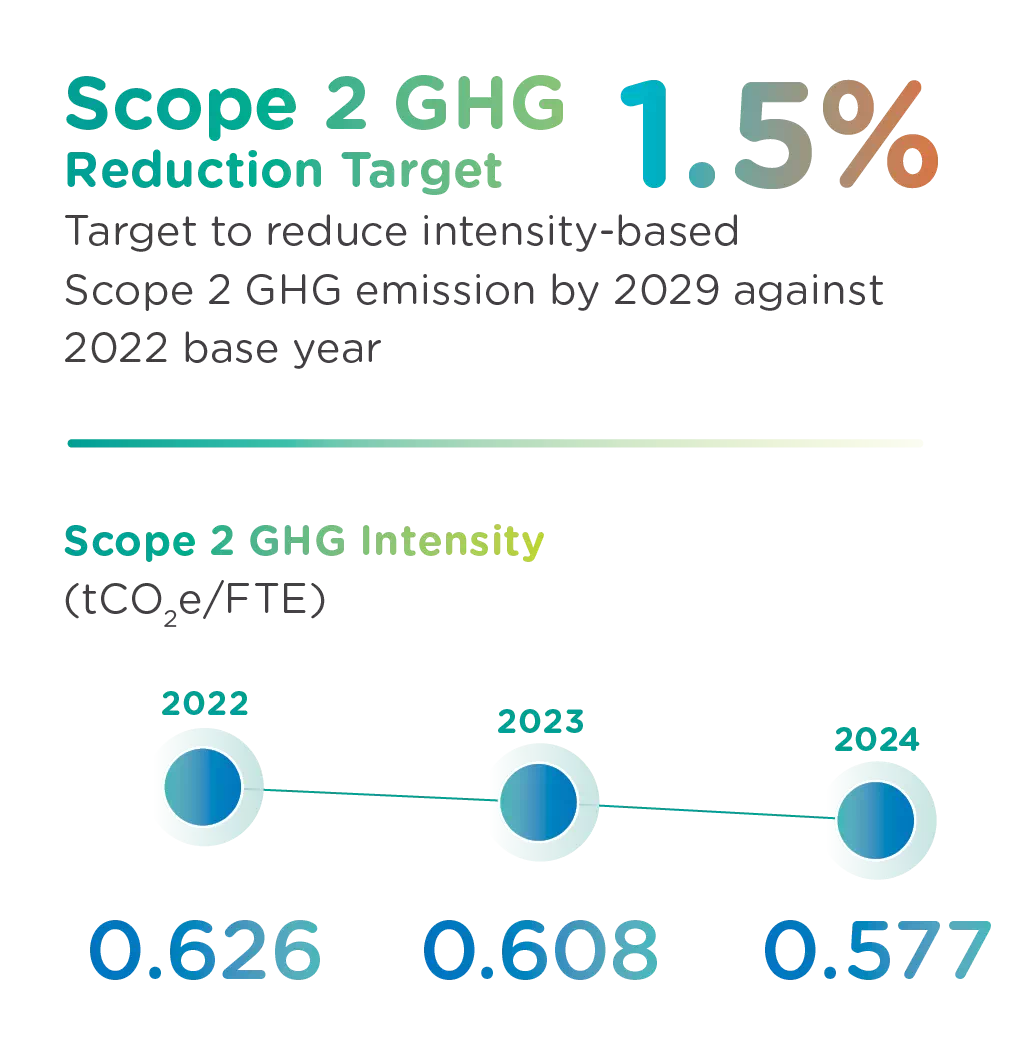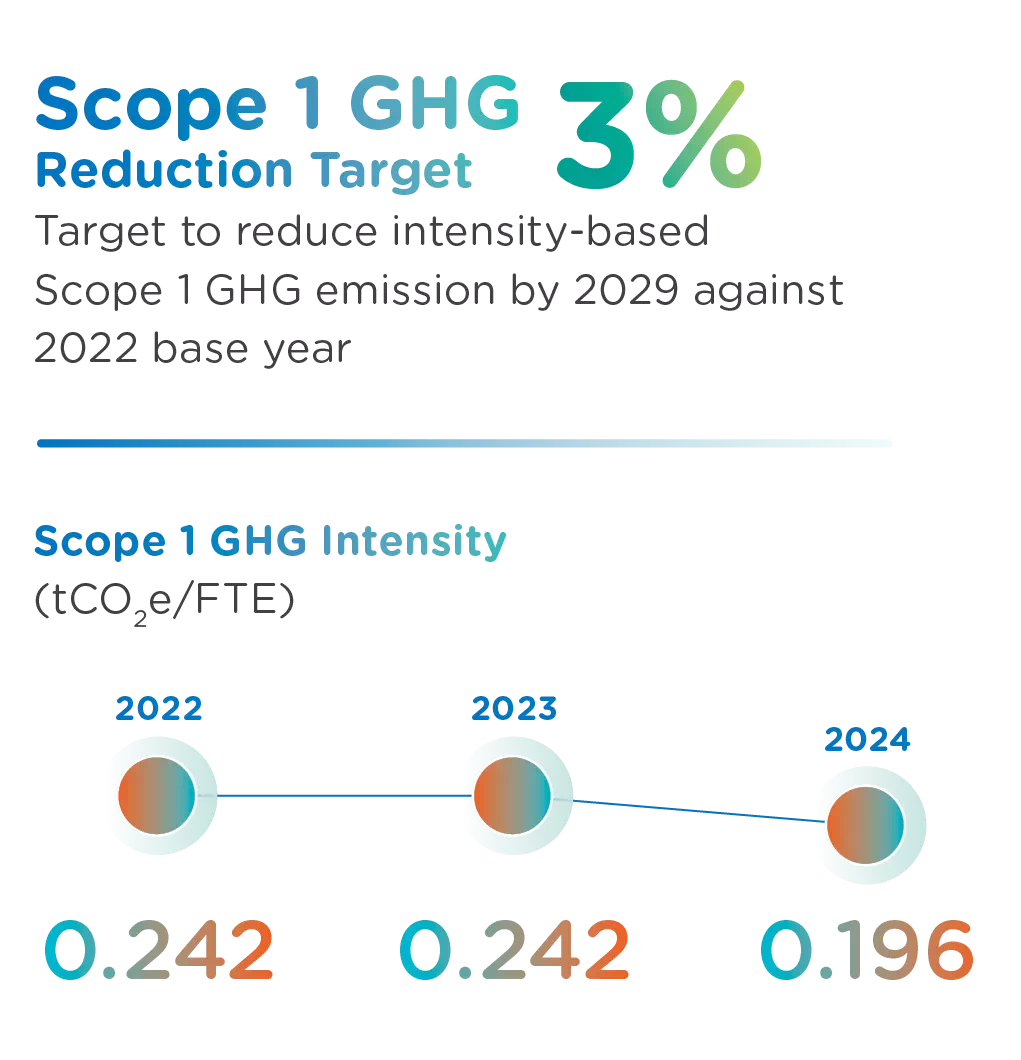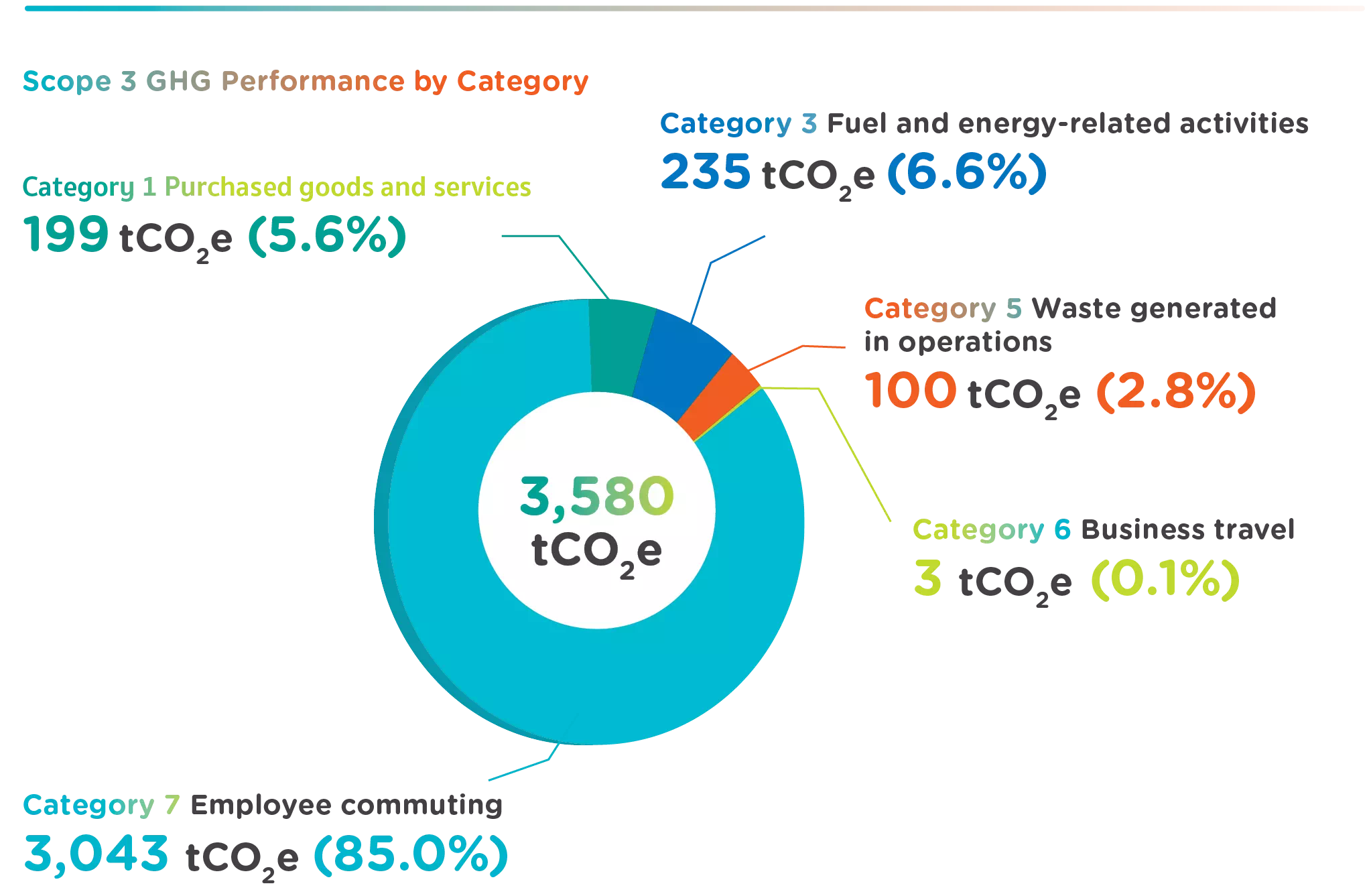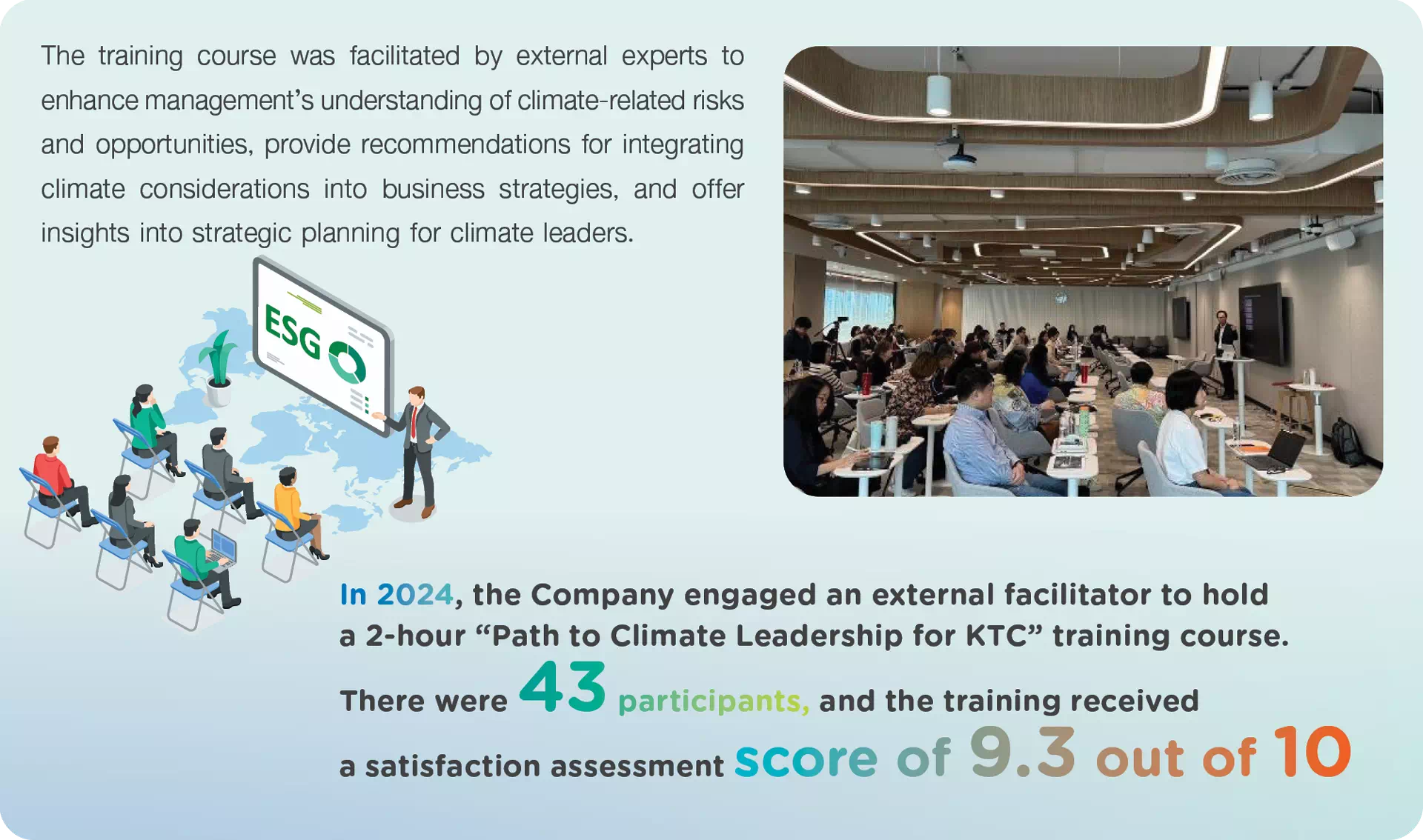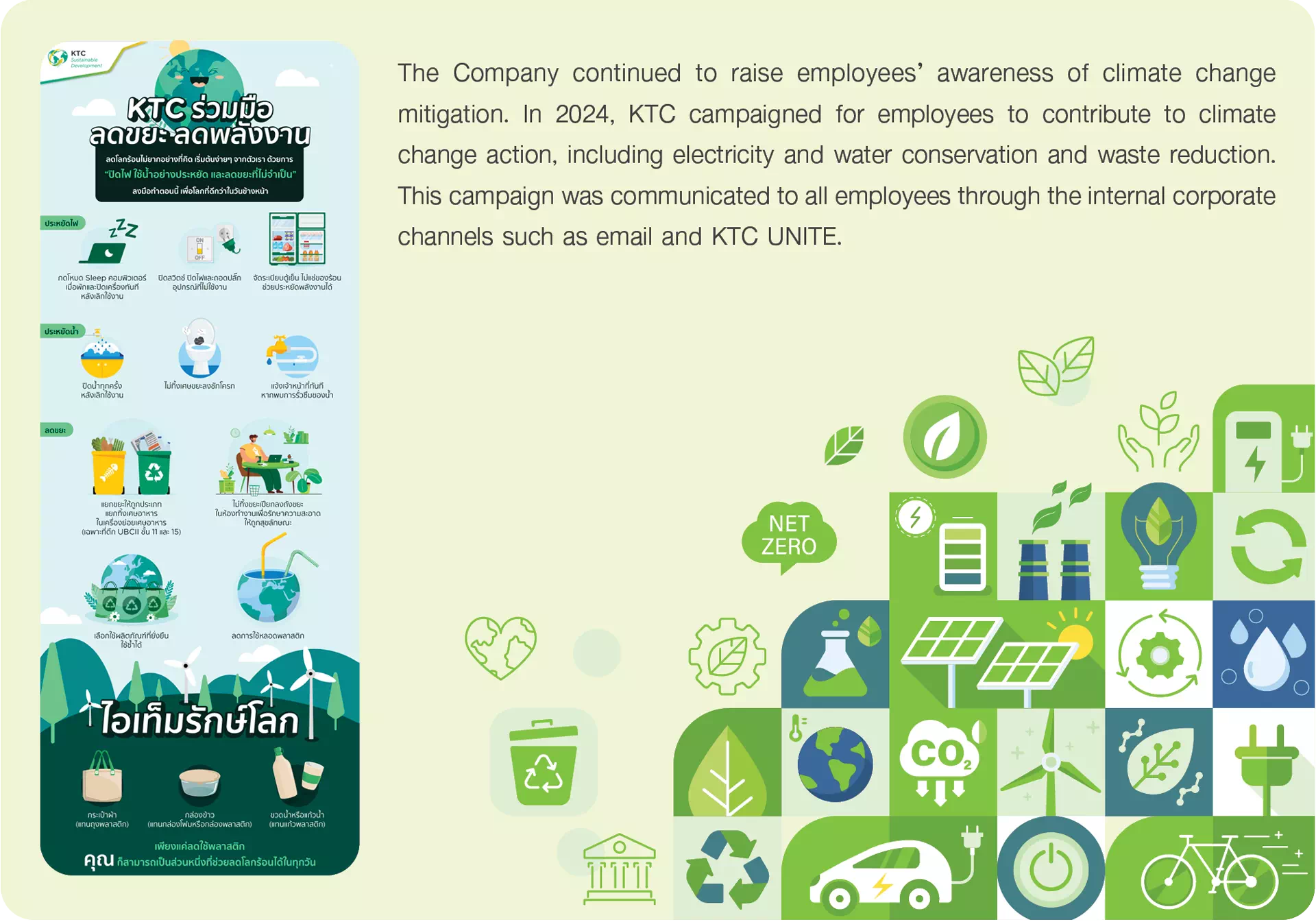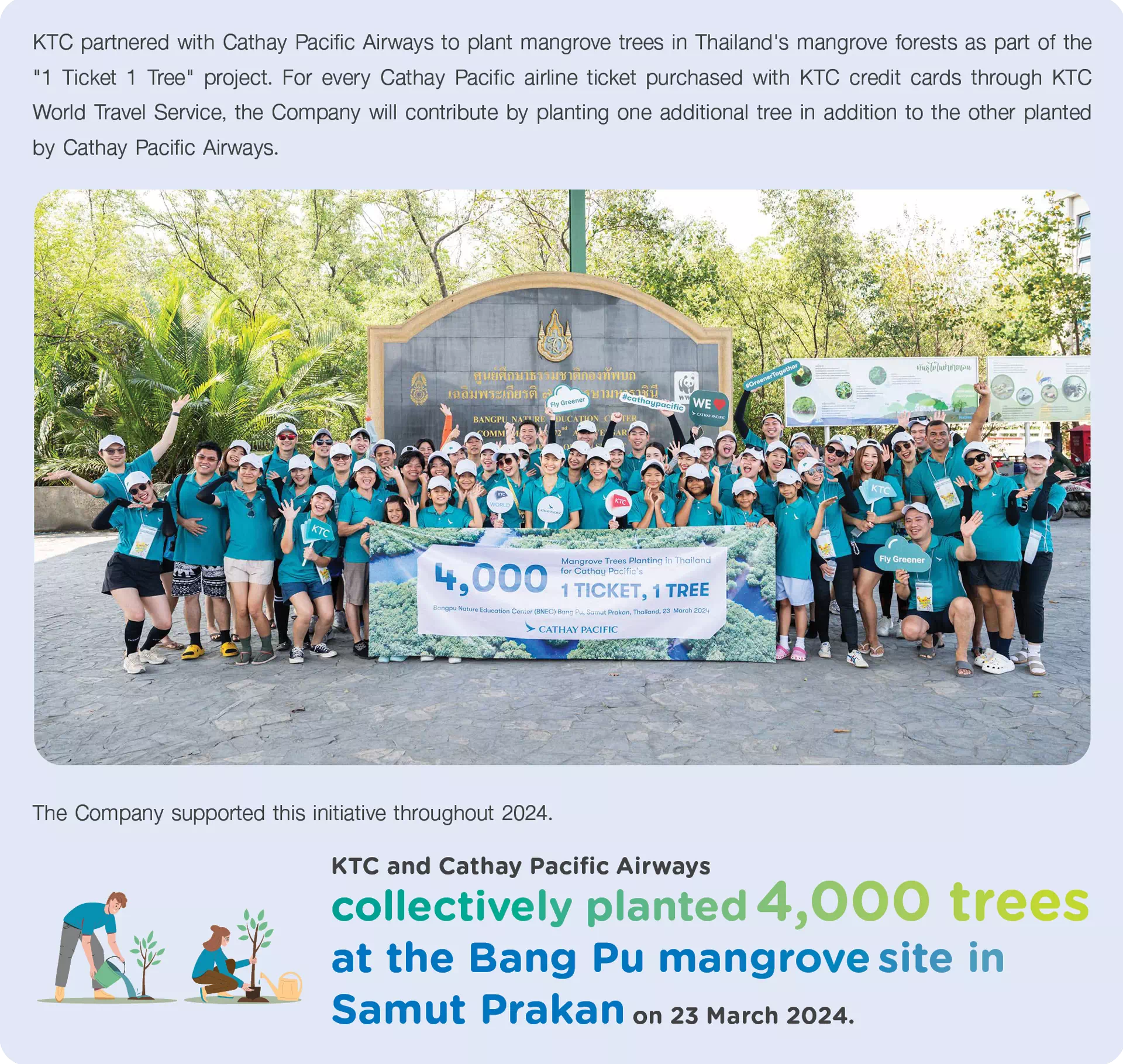Challenges and Opportunities
Climate change poses both significant risks and compelling opportunities for businesses worldwide. The Company recognizes the rising physical risks of climate change, including the increased frequency and severity of natural disasters, which may disrupt operations and impose additional operational costs. Furthermore, transition risks are intensifying as the global shift to a low-carbon economy accelerates, which are driven by initiatives such as the Paris Agreement and the agreements from the 26th Session of the United Nations Framework Convention on Climate Change (COP26) that enforced collaborative efforts to cap the global temperature rise at 1.5¡C above pre-industrial levels. Moreover, Thailand’s national goals to achieve carbon neutrality by 2050 and net zero greenhouse gas (GHG) emissions by 2065 have further reinforced the urgency for businesses to adapt and enhance operational climate resilience. Both physical and transition risks may lead to more stringent government regulations, changes in carbon pricing mechanisms, shift in market expectations, and changes in consumer behaviors. These could expose the Company to potential regulatory non-compliance, reputational risks, and competitive disadvantages. Proactive environmental management reduces resource consumption, and minimizes greenhouse gas emissions, thus decreasing associated operational expenses
Key Achievements
- Reduced Scope 1 GHG emissions by 19% (against 2022 baseline)
- Reduced Scope 2 GHG emissions by 8% (against 2022 baseline)
The Company implements the following management approach to address climate change issues effectively.
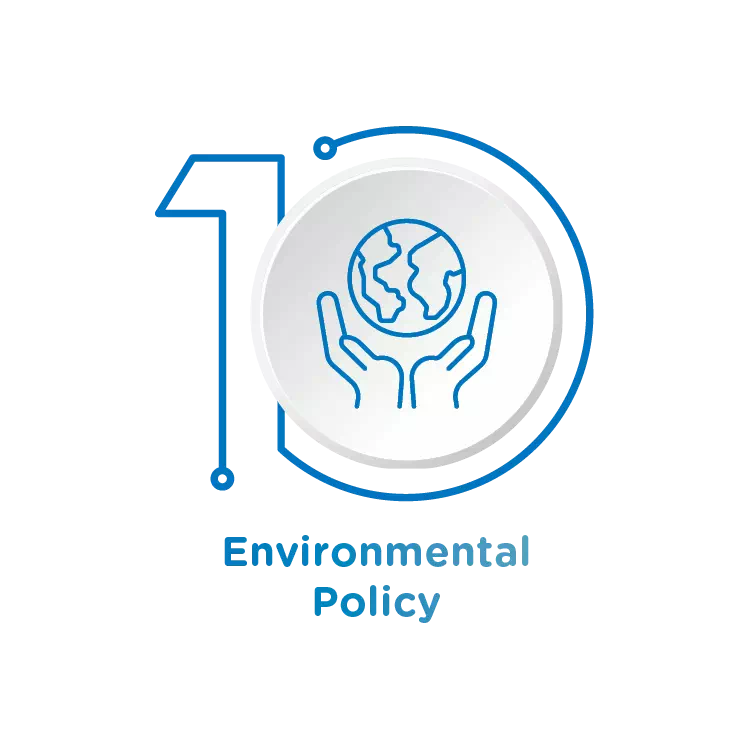
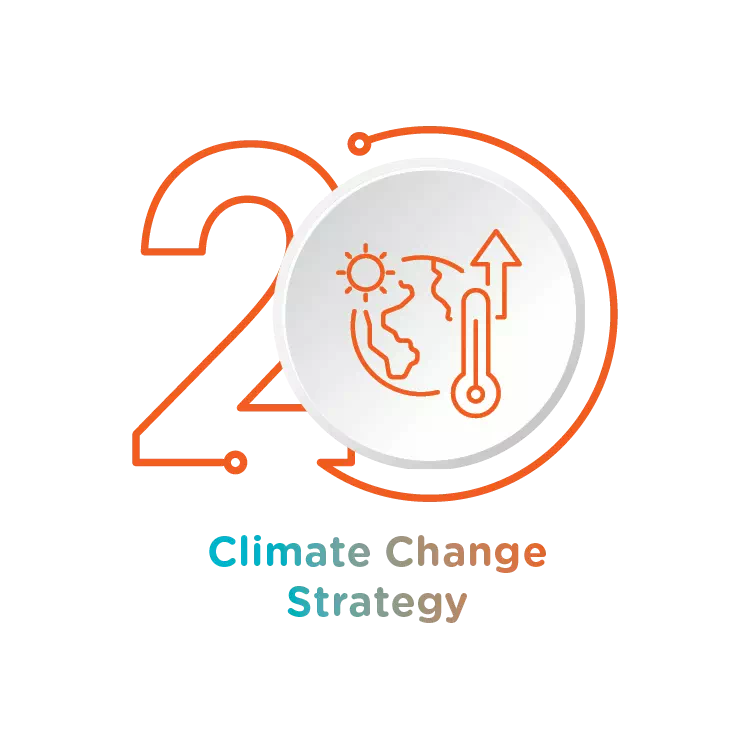
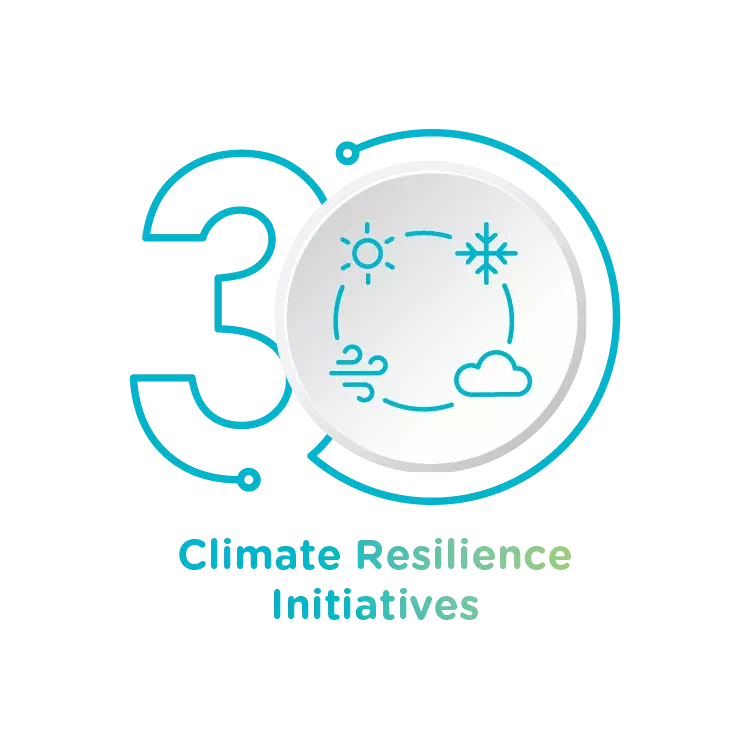



 Promotions
Promotions
 KTC WORLD
KTC WORLD KTC U SHOP
KTC U SHOP




 Login
Login






